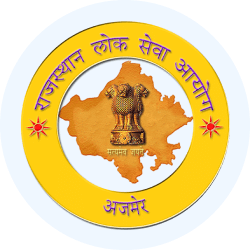Detailed Index - History Section | RAS RPSC Prelims Preparation - Notes, Study Material & Tests - RPSC RAS (Rajasthan) PDF Download
Index:
History is divided in 3 Parts:
1. Ancient History
2. Medieval History
3. Modern History
Modern Period
This Section contains 9 documents and 2 online tests.
Ancient History 1 - Ancient Indian History (Quick Revision)
• Pre-Harappan Period,
• Harrapan Cities (Chalcolithic Age),
• Indian Religious Books,
• Ancient Books & Authors,
• Famous Inscriptions,
• Buddhist Councils,
• Nastika Shools of Indian System of Philosophy,
• Astika Schools of Indian System of Philosophy,
• Dynasties of Ancient Northern India,
• The Guptas & Later Period,
• Kings and Their Court Jewels,
• Administrative Units & Their Ancient Names.
- Miscellaneous Facts of Ancient Indian History.
Medieval History: - 2. Medieval History - Indian History
- North India in Medieval Period,
- East & the North East in Medieval Period,
- Deccan & the South,
- Delhi Sultanate (1206-1526 AD),
- Mughal Empire,
- Selective Treaties & Battles.
- Miscellaneous Facts of Medieval Indian History.
Modern Period
3. Modern Period - Indian History
- Later Mughal Rulers,
- Contemporary States,
- The Peshwas,
- Important Battles,
- Socio-Religious Reformers & their Organizations,
- Social Reformers & Their Work.
4- Modern Period - Indian History
- Newspapers/Magazines/Weeklies,
- Conspiracy Cases/ Revolutionary Act.
- Congress Sessions,
5 - Modern Period - Indian History
- India in the Eighteenth Century,
- Decline of the Mughal Empire,
- Succession States,
- Hyderabad and the Carnatic,
- Administrative Organization of the British,
- Development of Education,
- Social and Cultural Awakening.
6. - Synopsis of NCERT(Part -1) - Indian History
- Introduction to Indian national movement,
- Why is the Indian National Movement Unique,
- Outstanding Features Of The Freedom Struggle,
- Why Did The Sepoys Revolt ?
- Important Persons relating to the Revolt,
- What factors strengthened and facilitated the national movement?
- Rise of Indian National Congress,
- Indian National Congress,
- Why was there a need for an All-India organization?
- Aims of INC,
- Contribution of early nationalists,
- Nationalist Movement 1905-1918,
- The Swadeshi Movement.
7. - Synopsis of NCERT(Part -2) - Indian History
- The Swadeshi Movement,
- Growth of Communalism,
- Muslim League,
- Muslim Nationalists,
- Hindu Communalism,
- World War I and Indian Nationalism,
- The Home Rule Movement,
- Lucknow Pact (1916),
- Gandhi’s early career and activism,
- Non Co-operation Movement,
- The Working Class Movements,
- Struggles for Gurudwara Reform and Temple Entry,
- Independence of India,
- Simon Commission (1927),
- Civil Disobedience Movement.
Online Tests :
1. Ancient Indian History - MCQ Test 1 (One Time Attempt with detailed Solution and Analysis).
2. Ancient Indian History - MCQ Test 2 (One Time Attempt with detailed Solution and Analysis).
FAQs on Detailed Index - History Section - RAS RPSC Prelims Preparation - Notes, Study Material & Tests - RPSC RAS (Rajasthan)
| 1. What is the significance of the Indus Valley Civilization in Indian history? |  |
| 2. How did the Mauryan Empire rise to power in ancient India? |  |
| 3. What was the impact of British colonialism on India's economy? |  |
| 4. How did India gain independence from British rule? |  |
| 5. Who were the main leaders of the Indian freedom struggle? |  |

















